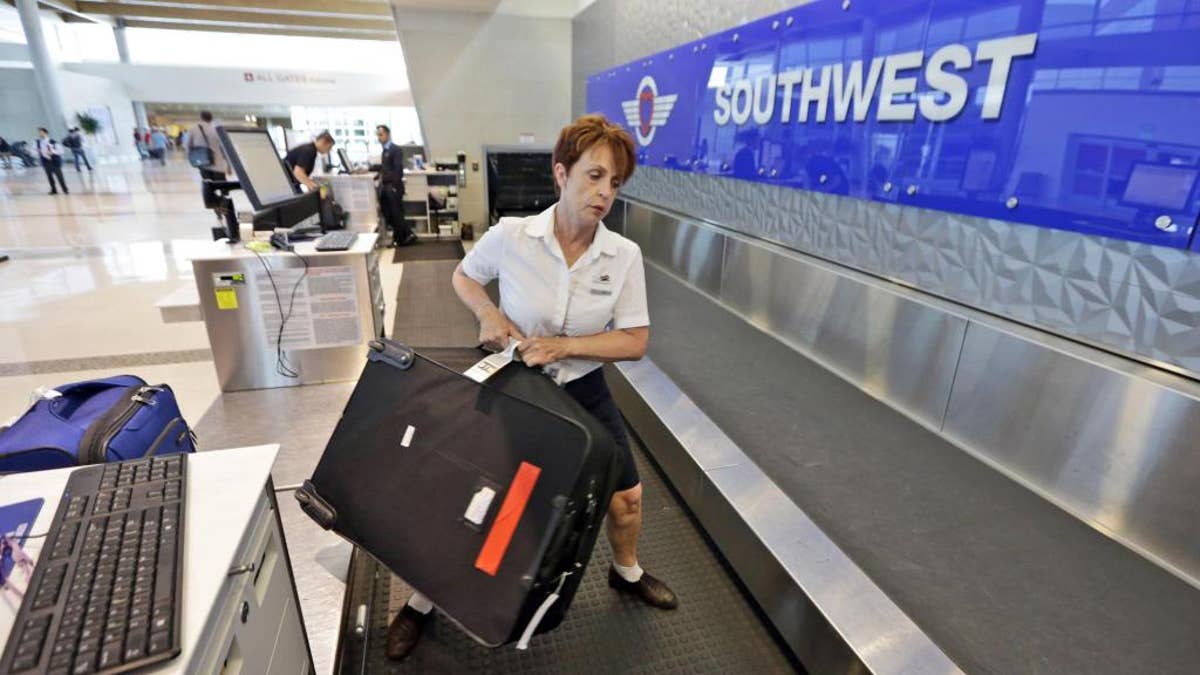
On Southwest, bags are flying free but passengers are getting in late.
A study released this month in the journal of Management Science surmises that while the airline's free checked baggage policy has been popular with flyers-- and allows it to stand our from other domestic carriers charging increasinly exorbitant fees-- it’s slowing down the process of on-time departures.
Specifically, the study found that even with more people carrying on bags to avoid fees (and thus slowing the boarding process) that extra time boarding was outweighed by the time saved from having to process less checked bags into the plane.
But if there’s no fee, more bags are checked and the whole process is delayed.
The study examined approximately nine million domestic flights between May 2007 and May 2009, when most U.S. carriers began charging for checked bags. The time frame was chosen to measure the impact immediately before and after the change. It was also controlled for more than a dozen factors including weather, airline, aircraft type and passenger loads in order to separate the effect that the bag fee policies had on on-time departures.
After fees for the first checked bag became widespread, the study said, the average departure flight delay was decreased by two minutes.
In fact, all U.S. airlines (including Southwest) experienced an improvement in on-time departures as a result of the bag fee change. The authors conclude that's likely the result of fewer checked bags overall being handled at an airport.
But Southwest saw a smaller benefit than other airlines that charged fees, suggesting that its "bags fly free policy" was actually encouraging more checked luggage.
Despite the on-time arrival difference between Southwest and the other airlines being just a few minutes or less, the study said the efficiency delay could be adding up to millions of dollars in lost profit that the carrier is willing to let fly by.
Still, Southwest seems resigned to start charging for luggage anytime. CEO Gary Kelly has consistently defended the approach, arguing that it’s a key driver of customer loyalty and is a foundational aspect of the brand. But Southwest will have a chance to reevaluate the approach soon. Its pending overhaul of its current reservations system will give the carrier the option to charge for bags.
It’s unlikely the Dallas-based carrier will change its policy soon, however, despite the likelihood that there are hundreds of millions of dollars to be made if they do so. Overall bag fees brought in more than $3.8 billion for all domestic airlines in 2015. During Southwest’s Investor Day presentation earlier this summer Kelly said they had “no thought of charging for bags.”
Instead, the airline is focusing on improving on-time performance while maintaining its low-cost model.
